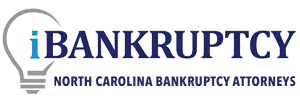Chapter 13 Bankruptcy Will Prevent Repossession Of Your Vehicle
Given the current situation caused right now by the COVID-19 pandemic, creditors have been somewhat held at bay from collection efforts. It appears that most banks and loan companies are giving people more time to catch up missed payments before repossessing. We do not know how long the non-aggressive collection efforts will last, but we do know they will not last forever. If you have fallen behind on your vehicle payment and are unsure how you are going to catch it up, then you should schedule a free consultation with me (336-431-9155) and fill out the online intake form. Chapter 13 is an option that you should consider.
ISSUE: Repossession of Vehicle
If a person becomes delinquent on a secured debt (other than a mortgage on real estate), one of the creditor’s methods of collecting upon the debt is to repossess the asset used as collateral for the loan. The most typical situation involving repossession is when an individual falls delinquent on his vehicle. The creditor will hire a towing company to hunt for the car at one’s residence, place of work, or anywhere else they suspect the car may be located. The creditor does not have to call and give the person notice that the tow truck is on its way. Rather, the tow truck can come spur of the moment and take the vehicle without the person knowing. After the repossession, the creditor will sell the vehicle at an auction and apply the proceeds to the debt. The creditor will likely not get the full balance owed from the sale creating a situation where the creditor will attempt to collect the deficiency from the person through phone calls, letters, and possibly a lawsuit.
One question I often get asked is, “How delinquent do I have to be on my car before the creditor will repossess it?” The answer is that it depends on the creditor and the situation. You only have to be 1 payment behind for the vehicle to be repossessed. Although I have found that the magic number is typically 2 to 3 months behind before the creditor will repossess. Some creditors move faster than others. Also, if you have a history of falling delinquent on the vehicle payments, then the creditor may hold a shorter leash and move to repossess sooner.
SOLUTION: Chapter 13 Bankruptcy
Chapter 13 will prevent your vehicle from being repossessed. As soon as you file a Chapter 13 you get the benefit of the “Automatic Stay” which is a mechanism created by the Law that immediately stops all collection efforts. This includes repossession of your vehicle. In fact if your vehicle has been repossessed and you file a Chapter 13 prior to the creditor selling the vehicle (the sale usually occurs 10 days or more after the repossession), then through a Chapter 13 you will likely be able to get your vehicle back as long as it is properly insured.
In most Chapter 13s you will pay off the vehicle loan and receive the title at the conclusion of the bankruptcy. The amount you pay for the vehicle will depend on the length of time you have owned the vehicle, the balance owed, and the car’s value. If you purchased your vehicle less than 910 days prior to the filing of your bankruptcy, then you must pay the full balance owed on your car. If you purchased your vehicle more than 910 prior to the filing of your bankruptcy, then you can pay back the lesser of the value of the vehicle or the balance owed.
SIDE NOTE:
Chapter 13 will also discharge any old repossession you have on your credit where the vehicle has been sold and a delinquency is owed. This type of debt will be viewed as “unsecured” and will be treated accordingly. But the bottom line is: any amount remaining owed at the end of your Chapter 13 will be wiped away.
